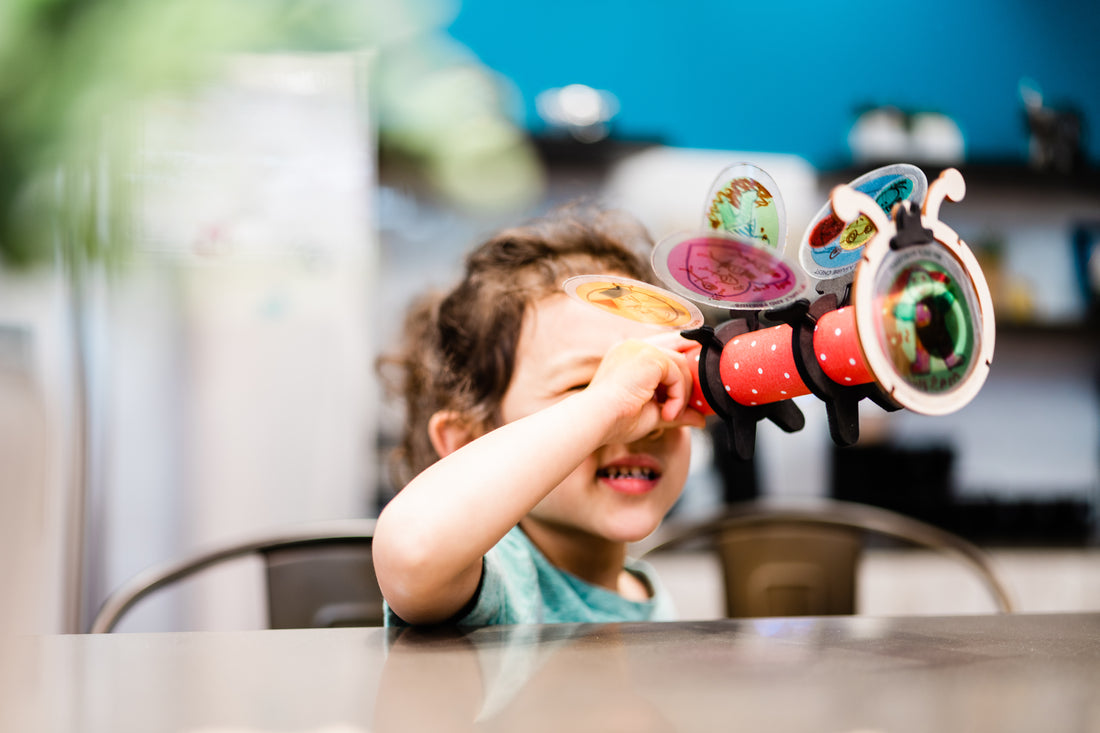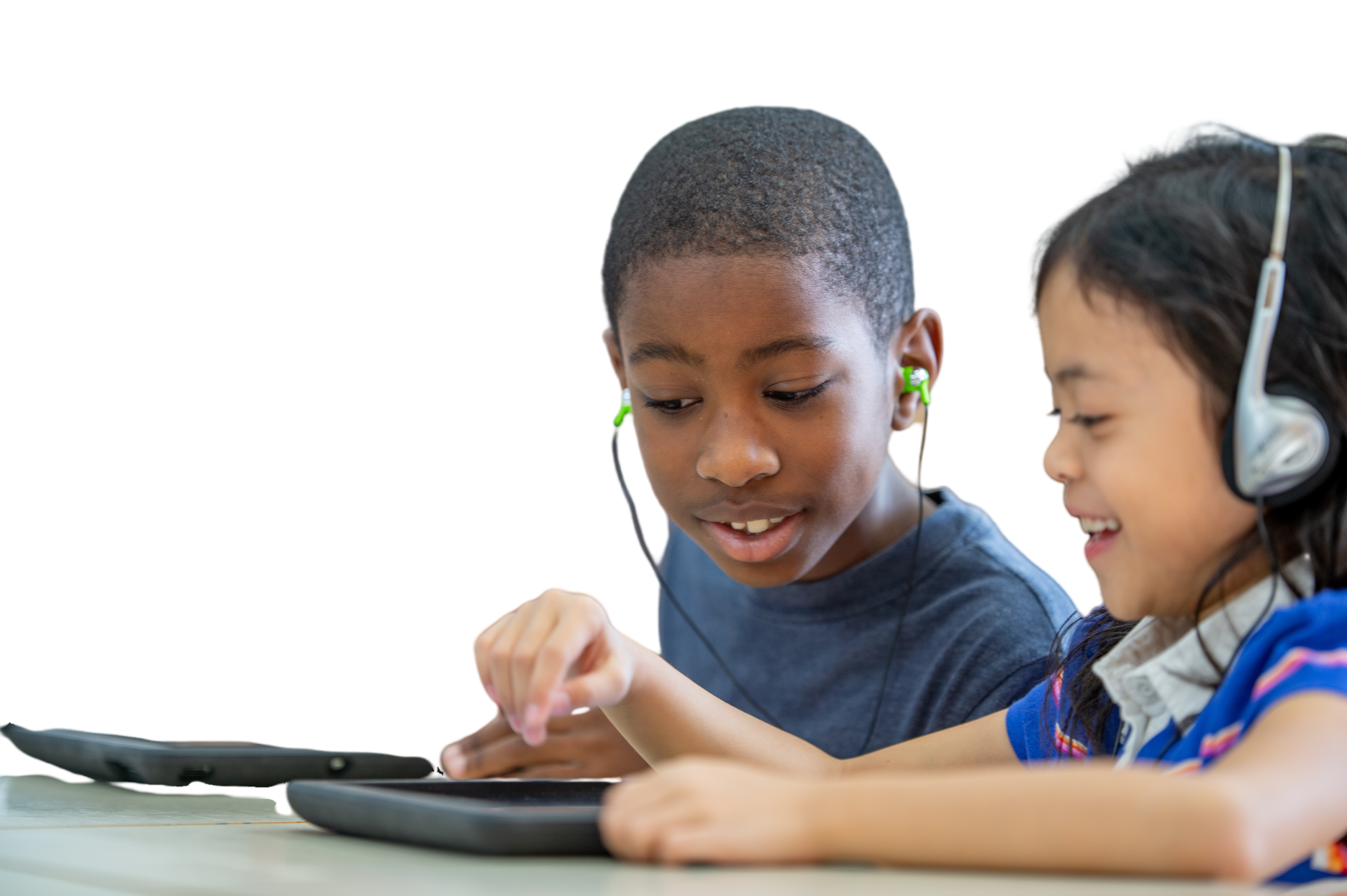
Social-Emotional Learning for Preschoolers: A Comprehensive Guide
Kimberly HongWhat is Social Learning for Preschoolers?
As your little ones get their first taste of what school is like, many kids are challenged with the task of sharing toys, taking turns, communicating with others, and working together. At these early stages of life, social learning mainly occurs within their interactions at preschools but is not limited to it.
For the parents who decided not to enroll their kids in preschool and spend a little more time with them at home, make sure you still provide them with plenty of opportunities to interact with other similar-aged kids.
For more social learning opportunities, try taking your kids to the park, enrolling them in music classes, gymnastics, or even little league baseball!
What is Emotional Learning for Preschoolers?
Ages 3 to 4 are these kiddos start experiencing changes within their environment. Not only is this the first time they experience extended separation from their parents, but as they embark into the real world and get a taste of what school is like, our little ones will feel and experience all sorts of complicated and new emotions.
At the age of three, these kids are still attempting to grasp their feelings. They're at the stage of life where if they find something funny, they'll burst into laughter, and if something makes them sad, they'll cry hysterically. They are used to taking and playing with whatever toy they desire, and though that behavior was okay at home, that same behavior can stir up problems in a preschool setting.
As they enter the scary but exciting world of preschool, conflict is bound to arise between similar-aged kiddos who all take interest in that shiny brand new toy versus the old broken one in the bottom of the toy box. As parents, we are responsible for teaching them the importance and concept of sharing. Additionally, though these kids can feel all the emotions on the spectrum, they have not quite mastered the capabilities of controlling their impulses and emotions. Not to say that it is not okay for kids to cry when they're sad or laugh when they find something funny, it's about teaching your little ones the right and appropriate way to express their emotions and cope with them.
At age four, traces of empathy will start emerging as they start understanding that the people around them also experience their own feelings. Their understanding of empathy allows them to relate to their friends and drives them to offer a crying friend a hug, as they too would have wished for a hug if they were sad themselves.
Why is SEL Important for Preschoolers?
You might be thinking, yes, social-emotional learning seems pretty important for a child, but my kiddo is still three or four years old. They're still so young the learning can wait! However, the key to nurturing our kiddos and helping them thrive in this challenging world is strengthening their social-emotional learning! Therefore it's crucial to start as early as possible, as the kiddo can develop a strong foundation.
The National Association for the Education of Young Children (NAEYC) points out, "Effective early childhood teachers recognize the value of developing children's social skills to promote cooperation and collaboration."
How do I ensure my kids are on the right path and developing the necessary skills to develop a strong foundation in SEL?
As parents ourselves, we understand the struggles of managing and understanding every little aspect of our little ones and their development. Here at MEandMine, we created a little cheat sheet to allow you to gauge your little one's progress in social-emotional learning.
Please do not be alarmed if your child displays a lack of progress in specific areas of social-emotional learning, as every child progresses at a different pace. Additional resources will also be provided at the end if you are looking to further their social-emotional learning!
Social-Emotional Learning Progress in Preschoolers
My Kids...
- Shares toys and understands how to take turns with the help of an adult
- Can initiate or join in play with other children
- Can make up games
- Can follow simple rules in games, but will always want to win
- Can participate in dramatic play, acting out whole scenes such as traveling or pretending to be animals
- Might be bossy and defiant
- Shows more independence
- Experiences a broad range of emotions (ex: jealousy, excitement, fear, happiness, anger)
- Becomes less egocentric
- Can be more even-tempered and cooperative with parents
- May show attachment to one friend
Red Flags for Social-Emotional Development at Age 4
My Kids...
- Is unable to initiate or join in play with other children
- Is not able to share at all with other children
- Wants to be dependent on their caregivers for everything
- Is extremely "rigid" about routines, and becomes extremely upset when things are changed
- Has extreme difficulty separating from you
- Is too passive or fearful, and does not want to try things other children their age are doing
- Has extreme fears that interfere with daily activities
Parenting Strategies to Support SEL
There's no doubt that raising a kid is possibly one of the most challenging tasks. So as parents, it's important to get as much help as you need and share the workload. When it comes to raising a family, both caregivers should try their best to get involved equally in the child's development, as the lack of participation from one caregiver can negatively impact the child’s overall development. Obviously, we all try our best to get involved, but sometimes the effort is not as apparent. Check out some expert tips on what you can do as a parent:
Strengthening Parental Relationship
Through years of extensive research, Professors Philip Cowan and Carolyn Pape Cowan from UC Berkeley suggest that:
"The single strongest predictor of whether a [significant other] will be positively involved with [their] children is the quality of [their] relationship with the children's mother. This is true regardless of whether parents are married or divorced, living together or separated, well-off or poor."
What this looks like:
- Parenting can be a demanding 24/7 job. Though it may seem like a 24/7 job, make sure you save some time for yourself and your partner, away from the kids, so that you can focus on your relationship together both as romantic partners but also as co-parents.
- Research from the study suggests that couples who attended a couples group showed more effective parenting, warmer and more encouraging responses to their children, better at setting limits, and their child performed better in school. This phenomenon is due to the power of groups. Being in a group to discuss your struggles and feelings allows many to realize that the struggles they are facing are normal. Many others struggle with similar issues, reducing the parental blame some parents may experience.
- If attending a couples group is too much of a commitment, try meeting up with other close parents to talk about your struggles and bounce ideas off of each other.
Increasing Parental Engagement
Make engagement easier:
- After a long day of work, the last thing you want to do is come home and think about how you can engage your little one with social-emotional development. Though you’d love to spend some time with your little one, getting rid of the thinking process might just be the solution to increasing your significant other’s engagement with your little ones. Have an activity already in mind, with set instructions, and instead of having the significant other lead the activity, maybe take this opportunity to let your little one take charge, allowing them to strengthen their confidence and self-esteem within a safe environment.
MEandMine's SEL x STEM Play Kits
Check out some of MEandMine’s SEL x STEM play kits that were specially designed to create these family bonding experiences of a lifetime, where parents can sit back and let the little ones take charge but also join in on the fun as your little ones take their first steps towards discovering the magic within themselves.
Key Developmental Areas and Suggested SEL Activities at Home
Target Self-Management:
1. Board Games to teach self-management and teamwork skills
- At this stage of life, your little one still has an egocentric view of the world, meaning they will most likely throw a fit when they lose a game.
- However, your simple board games can transform a teaching opportunity, as your kid actively practices taking turns while also learning the appropriate ways to process disappointment or anger when they lose. They can even put their teamwork skills up for the test as they work together to understand how the game works.
Target Teamwork:
1. Team Charades (Acting it Out)
- Put on your creative thinking cap as you work together to solve the mystery of what is the secret word your teammate is acting out.
- With preschool being one of their first times interacting with tons of other similar-aged kids, your little ones will naturally be faced with the challenges of working as a team. Though here, working together to save a little fish from the sharks may seem quite low stakes, the ability to work effectively with others is a lifelong skill that will carry over into every aspect of their lives. Help your little ones unlock the secret to how to work well with others as teamwork is the dream work.
Target Emotion Regulation:
1. iLuv's Emotion Science
- Emotions can be tricky but understanding how to recognize emotions is a crucial skill for your little ones to develop, especially at a young age. Set off on an adventure with iLuv to learn more about the various emotions that exist and explore fun new ways to talk about these tricky emotions. Become a master of emotions through challenging yourself to understand what types of emotions are appropriate during specific scenarios.
Target Tantrums:
1. iCalm Galaxy
- As a parent, either you have witnessed one or experienced one, but little kids' tantrums seem unavoidable. However, with the help of the MEandMine rescue squad and the iCalm guardians, hopefully, these never ending nightmares will come to an end as your little ones deepen their understanding of all the crazy emotions that exist but also learn all sorts of fun ways to regulate their emotions.
Target Empathy:
1. Ocean Spill Science Experiment
- Considering and understanding how others are feeling provides the foundation for your little one’s social success. Developing empathy isn't an easy task, but through engaging in the Aha! Empathy SELxSTEAM kit, your little ones will get a deep dive into real-life problems, where they will learn to take perspectives, feel others' feelings, develop empathy, and be equipped with the necessary skills that promote social success.
Target Self-Worth:
1. All About Me Kaleidoscope
- With growing up comes lots of questions. Who am I? What am I interested in? Who do I want to be? As your little ones continue this crazy journey of self-discovery, help your little ones develop self-esteem and gain a deeper understanding of themselves through building a one-of-a-kind kaleidoscope that represents them in a nutshell!
Additional Resources for Parents:
WebMD. (n.d.). Preschooler social development: Making friends, resolving conflicts, and more. WebMD. https://www.webmd.com/parenting/preschooler-social-development
TodayShow. (n.d.). Parents: Parenting news & advice for moms and Dads. TODAY.com. https://www.today.com/parenting-guides/pre-k
Understanding the Power of Yet:
Ted Talk Tuesday: The power of yet. Cornerstone Talent Experience: One platform. Limitless potential. (n.d.). https://www.cornerstoneondemand.com/resources/article/ted-talk-tuesday-power-yet/
Good Reads:
Dweck, C. S. (2016). Mindset the new psychology of Success. Ballantine Books





 Most Popular
Most Popular
